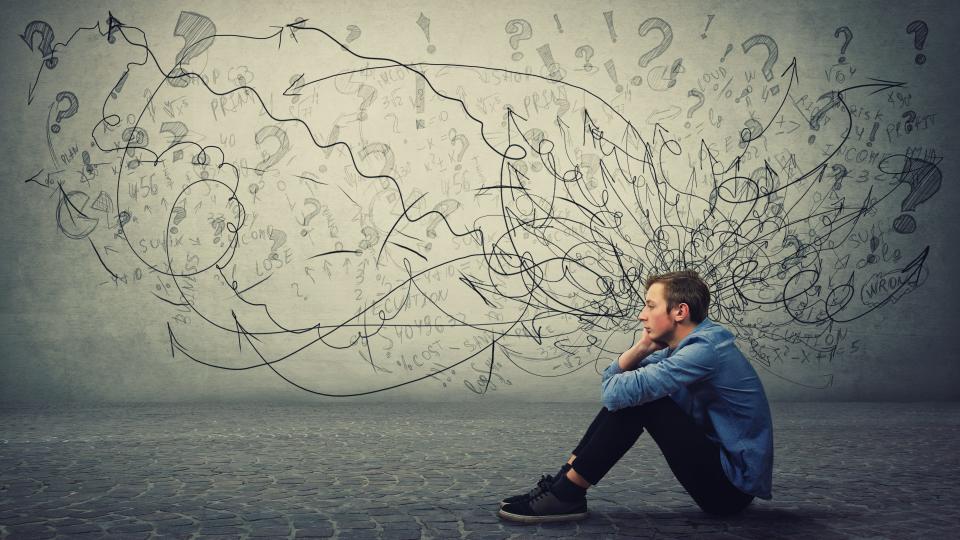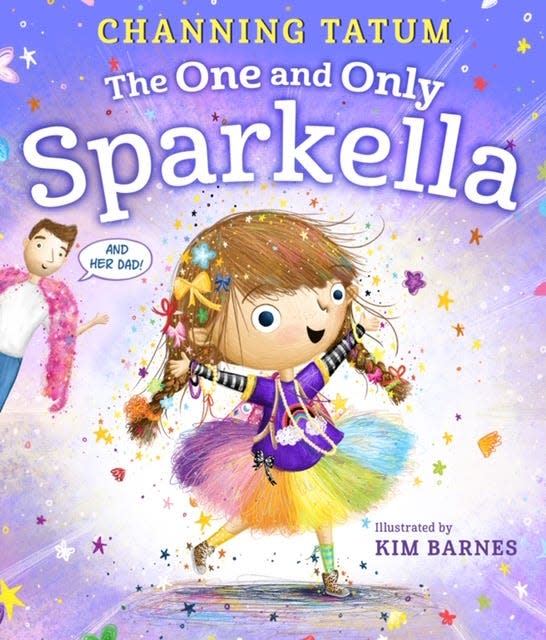My brain is starting to think outside the pandemic

- Oops!Something went wrong.Please try again later.
One thought has been on my mind lately: I need some friends.
As vaccinations progress and case numbers are on the decline for much of the country, I'm starting to think about some things that have been pushed to the far back of my mind. Namely I am thinking more and more about how my husband and I need to make friends in our new community.
When we moved into our new home in November, I wasn't concerned about making friends. The pandemic was raging, it was too cold outside for socially distanced hangouts, and we were used to our own company. We went grocery shopping. We walked our dog. But did we really live in our new neighborhood? No.
Now, after I've been vaccinated and my husband is scheduled to receive his second shot Friday, my mind is less filled with thoughts of my safety, and I'm thinking more about other items on my hierarchy of needs. I am exploring my neighborhood. I am reaching out to neighbors, friendsand familyto make plans for post-vaccination socializing. I am thinking about the future.
It's a slow process for my brain to move on from the basics of survival to my broader psychological and social needs. Much like the process of reaching "normalcy," it will be a series of baby steps, possible set backs and readjustments. But when someone suggested a restaurant that we might visit together soon, it felt like something I could envision, rather than fantasize about. And that in itself is enough to bring me some joy today.
Today's advice for not thinking. Really.
When psychotherapist Nancy Colier decided to write a book about addiction to thinking, people told her the premise was absurd. But there's more to it than that.
"Can't Stop Thinking: How to Let Go of Anxiety and Free Yourself from Obsessive Rumination" isn't an anti-thinking book, she said, but an effort to help people liberate themselves from the obsessive rumination, catastrophizing and negative self-thoughts that have plagued many of her clients over her 25 years in practice.
My colleague Alia Dastagir spoke with Colier about her new book and how people can take control of their thinking rather than be ruled by it. Here are a few excerpts from their conversation I thought you would all enjoy.
Q: You write that self-help is solving the wrong problem, particularly as it tries to change bad thoughts into good thoughts. Can you explain that?
Colier: As long as we're still believing that our wellbeing is reliant upon the content of our thoughts, we're still imprisoned. We're still stuck.
What I'm trying to do is move the dial a little bit further, which is to say ... your happiness, your wellbeing, your peace ultimately is not dependent upon how your thoughts are framing something. That's when we start to meet real freedom. Of course we prefer to have happy thoughts moving through. There's no question, but what would it mean if our real wellbeing didn't rely on that? Then every time a negative thought got through, we wouldn't be, "Ah, now my mood has to be negative." That offers real liberation.
Q: Is the goal then not to replace self-hating with positive thoughts, but to stop believing them?
Colier: The reason I say we don't just replace them with great thoughts is because when things get hard, that doesn't work. It's like putting a hat on dirty hair.
Q: If the reader takes one thing away from your book, what should it be?
Colier: Sometimes less thinking actually takes us to peace. That figuring it out may not be what ends your suffering. That thought may not be the panacea to what ails us.
You can read the full interview here.

Today's joy: Socially distanced proms
Alyssa Smith's pandemic prom looked nothing like the storied senior dances from movies and TV. Carefully applied makeup was concealed behind face masks and the dancing was constricted, limited to painted squares carefully outlined on a football field. Students spent intervals of the night snacking on pre-packaged, individual meals.
It was "pretty weird."
But it was still magical, she said. The night gave her the chance to let loose, dress up and have fun with her friends — all together in one place. It elicited feels she hadn't experienced in over a year.
"A lot of us were so focused on school this year, because we couldn't really do anything else. So by having this prom, we were able to kind of snap back into high school and feel young, like teenagers again," the Avondale, Ariz., teen recalls.
My colleague Jenna Ryu spoke with high school students around the country about the happiness and relief they felt at being able to hold socially distanced proms, even if they didn't look like a traditional dance. You can read the full story here, and try not to smile at the sweet kids.

Today's reads
From our film critic and "Star Wars" expert Brian Truitt, six ways to celebrate May the 4th, aka Star Wars Day.
Happy Teacher Appreciation Week to any teachers who are reading this! I can't imagine the hard work and sacrifice o the past 14 months. You are amazing. Our Money section rounded up some of the freebies you can get this week. Treat yourselves.
Upgrading your phone or computer? We have a primer on the best ways to recycle old tech without hurting the environment.
Some experts think we're closer to a vaccination tipping point than we realize. Our health reporters explain.
My colleague Barbara VanDenburgh talked to Channing Tatum, who has a new career as a children's book author.

Today's pet
It's May the 4th, so how could I resist sharing a picture of a puppy named Naboo?

"My little puppy is named Naboo because we got her on May the 4th last year," says Brigid Lindveit. "We watched all of the 'Star Wars' movies this time last year to pick a name. We ended up going with Naboo (a planet in the 'Star Wars' prequel films) because we already had a cat named Neptune so now they are both planet names. Most of the time we call her 'Boo' or 'Booboo.' She has an overbite and sticks her tongue out a lot, especially when she is sleepy. We have loved having a puppy over the past year with the pandemic since I work from home. She is the biggest cuddler! Oh also, she is half French bulldog, half Shih Tzu."
This article originally appeared on USA TODAY: My brain is starting to think outside the pandemic

